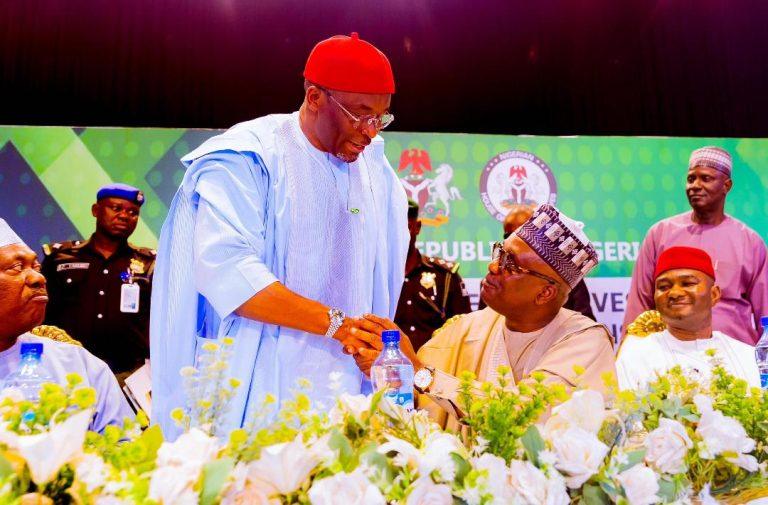The leadership of the House of Representatives has described the ongoing constitution review as a significant moment in the nation’s democratic journey

Speaker of the House of Representatives, Rep. Abbas Tajudeen, and Deputy Speaaker, Rep. Benjamin Kalu, this week set the tone for Nigeria’s ambitious constitutional review, unveiling proposals they described as “a significant moment in the nation’s democratic journey.”
Declaring open the national public hearing on the review of the 1999 Constitution (as amended) in Abuja, Speaker Abbas said the exercise must be citizen-driven and concluded without delay.
“Reform delayed is reform denied, and Nigerians deserve clarity and closure,” he declared. “We intend to vote on the proposals expeditiously and give the states enough time to deliberate and endorse the people’s will.”
Abbas highlighted transformative amendments under consideration, including:
- Reserved seats for women in the National and State Assemblies to address Nigeria’s low female representation.
- Guaranteed representation for persons with disabilities and gender quotas in ministerial appointments.
- Formal advisory roles for traditional rulers in peacebuilding and community security.
“These reforms will make our democracy more representative, responsive, and just,” the speaker said, adding that many proposals fit in with President Bola Tinubu’s renewed hope agenda by providing the “legal chassis” for reforms in security, economic revitalisation, inclusivity, and transparent governance.
Deputy Speaker Kalu, who chairs the Constitution Review Committee, underscored the depth of nationwide consultations that produced 87 amendment bills drawn from public hearings, memoranda, and regional engagements.
Key proposals include:
- Electoral reforms such as independent candidacy, an Electoral Offences Commission, and strict timelines for pre-election dispute resolution.
- Devolution of powers, notably a landmark bill to move policing from the exclusive to the concurrent List, paving the way for state and community police.
- Local government autonomy, guaranteeing financial and administrative independence for grassroots governance.
“The ultimate authority for this process resides with you, the sovereign people of Nigeria,” Kalu said. “Constitutional reform is a marathon, not a sprint. Your continued engagement is crucial to see this through.”
Both leaders assured Nigerians of a transparent, participatory process shielded from political manipulation, promising to publish the harmonised version of the amendments before plenary voting.
President Tinubu, represented by the Secretary to the Government of the Federation, Senator George Akume, commended the House for creating an inclusive platform and urged citizens to seize what he called a “golden opportunity” to entrench good governance, justice, and sustainable development.
“The Constitution is the supreme law of the land. It is not static, but a living document that must continually respond to the realities, aspirations, and challenges of our people,” the president said, pledging full support for reforms that deepen federalism and strengthen democratic institutions.
If ratified by at least 24 State Houses of Assembly, the 87 amendments could deliver Nigeria’s most sweeping constitutional overhaul since 1999—reshaping governance, security, inclusivity, and accountability for generations to come.

